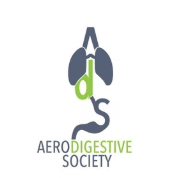Navigating aerodigestive conditions can feel overwhelming, but you are not alone. There are many resources and communities to help families coping with these challenges. Aerodigestive programs usually provide educational materials and may connect you with support networks. Here are some national and local resources, advocacy groups, and patient communities that can be valuable:
• Educational Materials: Many hospitals partner with trusted sources like KidsHealth to provide easy-to-understand articles and videos about conditions and procedures. Don’t hesitate to ask your care team for pamphlets or websites about your child’s specific condition (for example, information on GERD, tracheostomy care, or tube feeding). Knowledge is power – understanding the condition helps you feel more in control and better able to care for your child.
• Condition-Specific Support Groups: Depending on your child’s diagnosis, there may be national organizations or online communities focused on that condition. For instance, families dealing with esophageal atresia or tracheoesophageal fistula (EA/TEF) can connect with groups like the EAT (Esophageal Atresia Global) support network, where parents share experiences about surgeries and feeding strategies. If your child has a tracheostomy or requires a ventilator, communities such as the trach parent support forums (often found on social media or through websites like Aaron’s Tracheostomy Page) can offer practical tips and emotional support from people who understand.
• Feeding and Nutrition Support: For children with feeding tubes or significant feeding challenges, the Feeding Tube Awareness Foundation is a well-known organization run by parents. They provide helpful resources about day-to-day life with tube feeding and celebrate an annual Feeding Tube Awareness Week to spread knowledge. Another organization, Feeding Matters, focuses on pediatric feeding disorders and offers a community of caregivers and professionals, plus educational workshops. These resources can help you learn from others who have overcome similar feeding hurdles and provide ideas for encouraging oral eating when appropriate.
• Advocacy and Research Organizations: Several professional and advocacy groups are dedicated to conditions that overlap with aerodigestive issues. For example, APFED (American Partnership for Eosinophilic Disorders) offers resources and conferences for families dealing with eosinophilic esophagitis and related conditions. The Cystic Fibrosis Foundation provides extensive support for families managing cystic fibrosis (which, while a specific genetic condition, involves many aerodigestive-type care components like airway clearance and nutrition). Engaging with these organizations can keep you informed about the latest research and treatments, and they often have local chapters or events where you can meet other families.
• Local Hospital Resources: Your aerodigestive program’s hospital may offer additional support services. Many children’s hospitals have Child Life specialists who help children cope with medical experiences through play and education – they can be great allies during hospital stays or procedures. Hospitals may also have periodic parent workshops or support group meetings for families of children with technology dependence (e.g., trachs or feeding tubes) or complex medical needs. Social workers in the program can connect you with resources like home nursing (if eligible), early intervention programs (for developmental support), or even accommodations like Ronald McDonald House if you have to travel for care. Take advantage of these resources; they can ease a lot of stress.
• Aerodigestive Community and Conferences: The Aerodigestive Society and similar professional networks are not just for doctors – they often share patient-focused content on their websites or at family forums during conferences. They are committed to improving aerodigestive care and sometimes publish newsletters or updates that families can read to learn about advances in the field. Staying connected to such communities can give you hope and a sense of belonging to a larger movement aimed at helping aerodigestive kids.
Remember: taking care of yourself is also important. Seeking support is not just about medical knowledge; it’s about emotional well-being. Talking to other parents who “get it” can be a huge relief. Don’t hesitate to reach out through the above groups or ask your care team to help you find parent mentors or support networks. With the right resources and support, you will feel more empowered to handle the challenges and celebrate the victories that come with your child’s aerodigestive journey.
